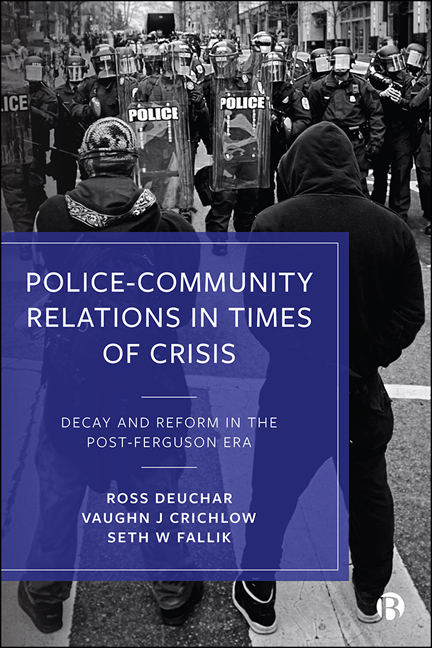5 - Reactive Policing of Gangs: Cops as “Warriors”
Published online by Cambridge University Press: 21 December 2021
Summary
In this chapter, we build on the previous discussion by exploring the “warrior” mindset in policing. This mindset is reflected in the highly controversial militaristic strategies that have characterized contemporary policing in many of America's disadvantaged crimeprone communities. Residents in these locations are often the recipients of disorder-enforcement, SQF, and zero-tolerance crackdowns. The conceptualization of warrior policing underlines the concern that officers who see themselves principally as warriors ignore the inherent consequences of forcible approaches in these communities. Here we define the contrasting roles of police as guardians and as warriors, followed by a critique of warrior policing and the impact of aggressive, and often reactive, enforcement strategies. We also explore the history of militarism and aggressive enforcement in the US, along with further insights from interviews with our sample of police officers and from our participant observation during deployments.
The warrior/guardian framework
In the 1960s, psychologist Abraham Maslow stated that “it is tempting, if the only tool you have is a hammer, to treat everything as if it were a nail.” (Maslow, 1966, p15). Maslow's hammer refers to a form of confirmation bias involving an overreliance on a familiar tool. When someone acquires a tool or a skill, there is a tendency to be influenced by its function and utility, which leads one to see opportunities to use that tool or skill everywhere. There is also a tendency to see the world through the narrow lens of one's profession. Policing is not the only occupation that is susceptible to this bias, but due to the high stakes associated with police work, the overreliance on the use of force is an ongoing concern. This heavy reliance on force also recognizes the role of organizational culture in shaping norms and sustaining the practices that influence the behavior of personnel (Paoline, 2003). Within this framework, police leadership may tacitly encourage officers to adopt behaviors that are consistent with the guardian or warrior policing orientations (Stoughton, 2016).
The overreliance on force can be understood within this context. Research suggests that the warrior mindset is a main catalyst for the problematic police–citizen encounters that have elicited increasing public outrage (Pyrooz et al, 2016b; Wolfe & Nix, 2016; Nix & Wolfe, 2016, 2017; Shjarback et al, 2017; Nix et al, 2018; McLean et al, 2019).
- Type
- Chapter
- Information
- Police-Community Relations in Times of CrisisDecay and Reform in the Post-Ferguson Era, pp. 81 - 100Publisher: Bristol University PressPrint publication year: 2021



